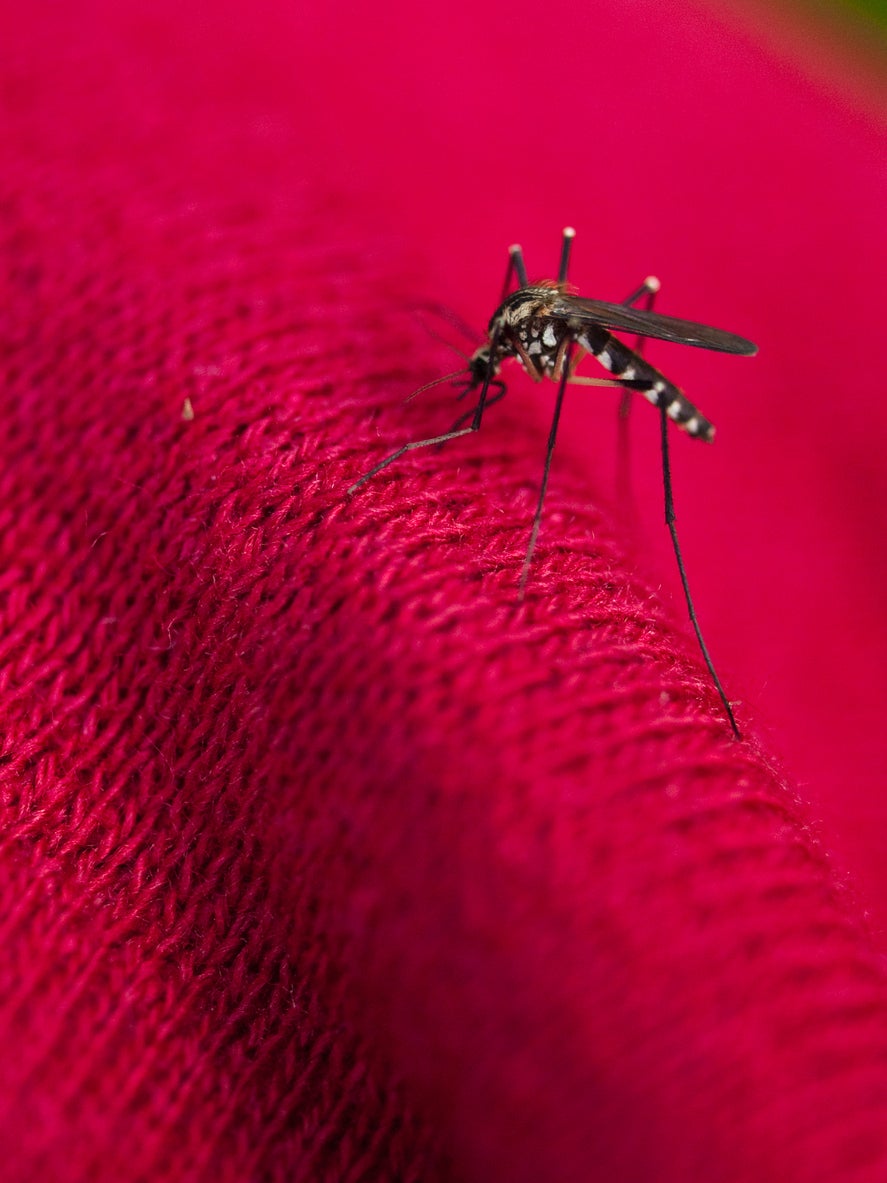First locally acquired case of malaria reported in Maryland after 40 years
There have been more than 2,000 cases reported annually of the mosquito-borne disease in the United Stated

Officials have confirmed a case of “locally acquired” case of malaria in Maryland, Washington DC, despite the patient not having recently travelled out of the country or to states where malaria has been found, Maryland’s Department of Health said on Friday.
The infection is the first of its kind in the state in decades and the individual who contracted the disease is said to have been hospitalised and is now recovering.
“Malaria was once common in the United States, including in Maryland, but we have not seen a case in Maryland that was not related to travel in over 40 years,” said Maryland Department of Health Secretary Laura Herrera Scott. “We are taking this very seriously and will work with local and federal health officials to investigate this case.”
There have been more than 2,000 cases reported annually of the mosquito-borne disease in the United States, according to the Centers for Disease Control and Prevention (CDC). Most of these cases occur in people returning from international travel.
The state Department of Health said, Maryland typically reports around 200 travel-related malaria cases each year, and the Maryland Department of Health investigates each case for cause and risk.
“Malaria can be very dangerous and even fatal if it is not treated, but early treatment reduces the chances of complications,” said Deputy Secretary for Public Health Services Dr Nilesh Kalyanaraman. “We urge the public to take precautions against mosquito bites, and if you develop symptoms after travelling abroad, seek urgent medical care.”
Symptoms of malaria usually appear seven to 30 days after an infective bite and include high fever, chills, body aches, diarrhea and vomiting.
Here’s what we know about the infection:
What is malaria?
World Health Organization (WHO) describes malaria as a “life-threatening” disease spread to humans by a certain type of mosquito.
The infection is caused by a parasite that typically infects a certain type of mosquito which then feeds on humans.
How is malaria transmitted?
Malaria is spread through a certain type of mosquito, known as the Anopheles mosquito. Only this female insect can transmit malaria.
The CDC has said the mosquitos “must have been infected through a previous blood meal taken from an infected person”.
When the insect bites the infected person, a small amount of blood is taken, which contains microscopic malaria parasites known as plasmodium. About one week later, “when the mosquito takes its next blood meal, these parasites mix with the mosquito’s saliva and are injected into the person being bitten,” the CDC website added.
Is malaria contagious?
The disease is not spread from person to person like a cold and flu and is not sexually transmitted. Therefore, the disease is not contagious.
What are the symptoms?
According to the NHS, the infection can be hard to spot after you have been bitten by the infected mosquito. Some of these symptoms include:
• A high temperature, sweating and chills
• Headaches and feeling confused
• Feeling very tired and sleepy (especially in children)
• Feeling and being sick, tummy pain and diarrhea
• Loss of appetite
• Muscle pains yellow skin or whites of the eyes
• A sore throat, cough and difficulty breathing
What are some of the precautions I can take to avoid getting bitten?
The risk to the public for locally acquired mosquito-transmitted malaria remains very low, according to the CDC. However, here are some precautions to prevent mosquito bites or travel-related malaria:
• Use insect repelling that contains DEET – this chemical is the most effective way of keeping mosquitos away.
• Try to wear loose-fitting and long-sleeved clothing if you can.
• Keep windows and doors closed or covered – this will prevent insects from entering your home.
• Empty standing water at least once a week to prevent mosquitos from laying eggs.
• Be sure to check where you are travelling to see the risk for diseases. This will allow you to prepare and take precautions.
• If you travelled to an area and believe you have contracted the disease, you should seek urgent medical care.
Subscribe to Independent Premium to bookmark this article
Want to bookmark your favourite articles and stories to read or reference later? Start your Independent Premium subscription today.

Join our commenting forum
Join thought-provoking conversations, follow other Independent readers and see their replies